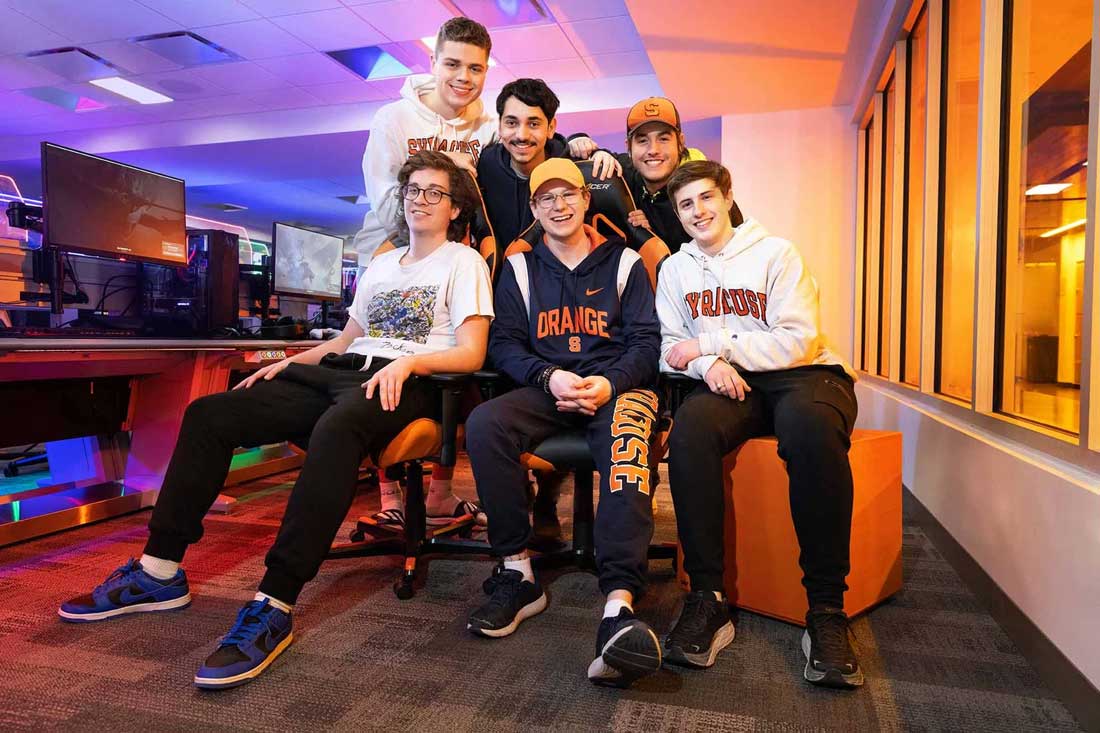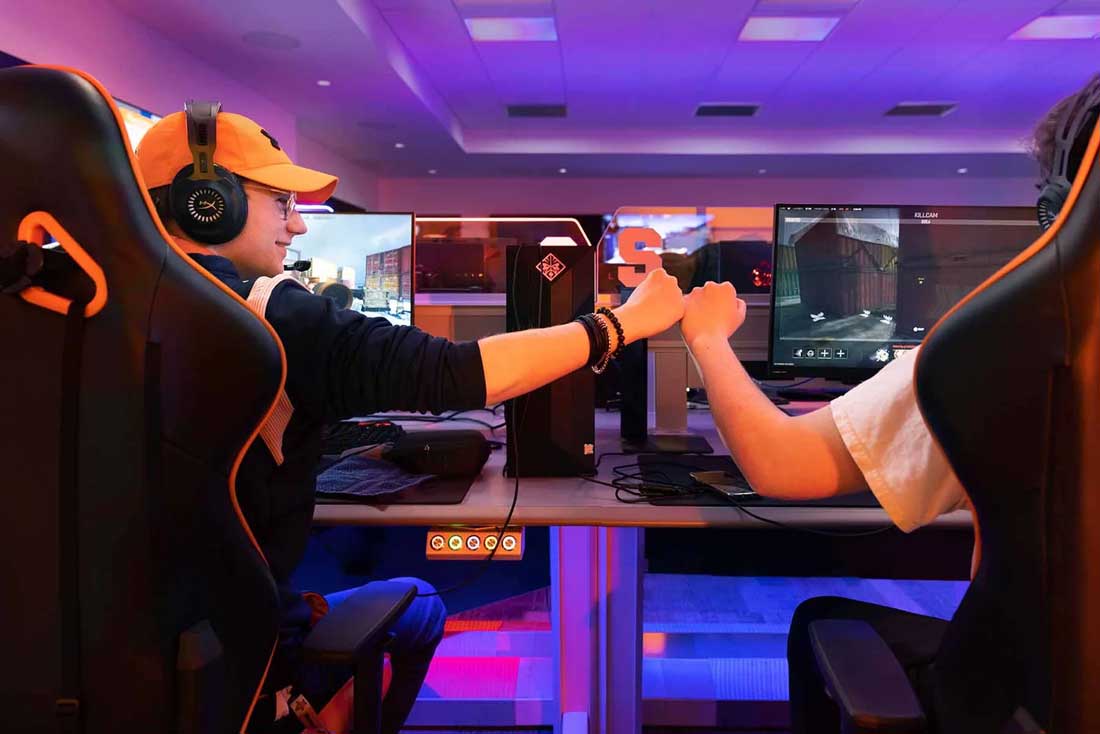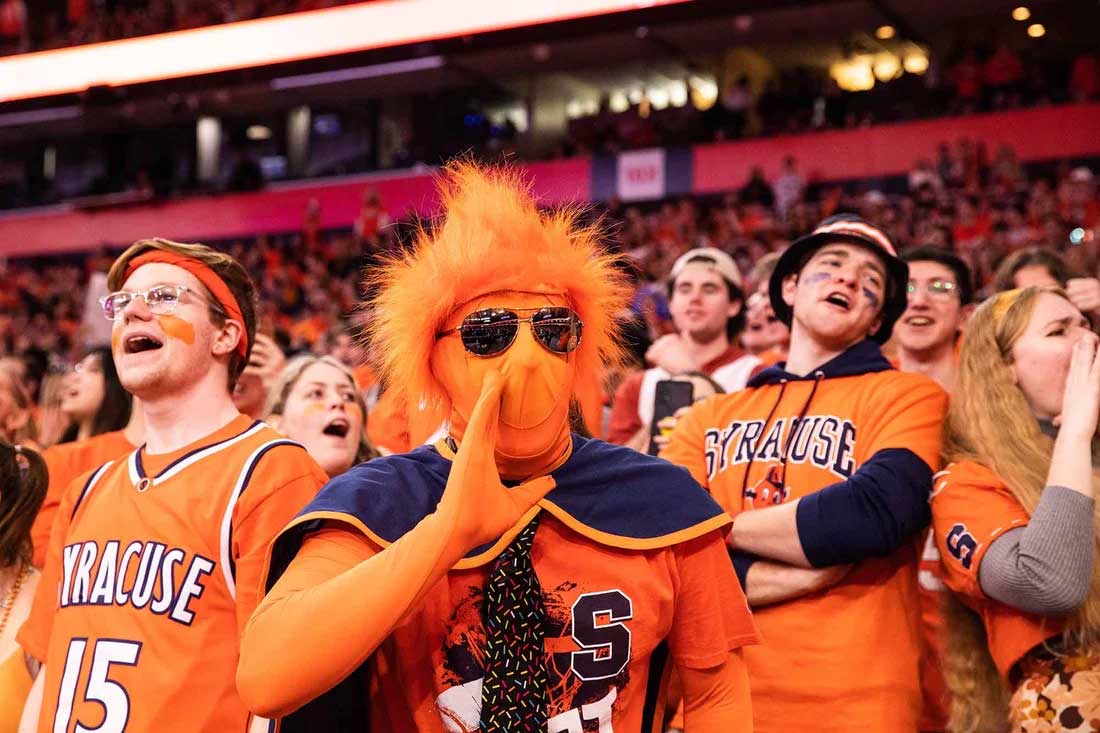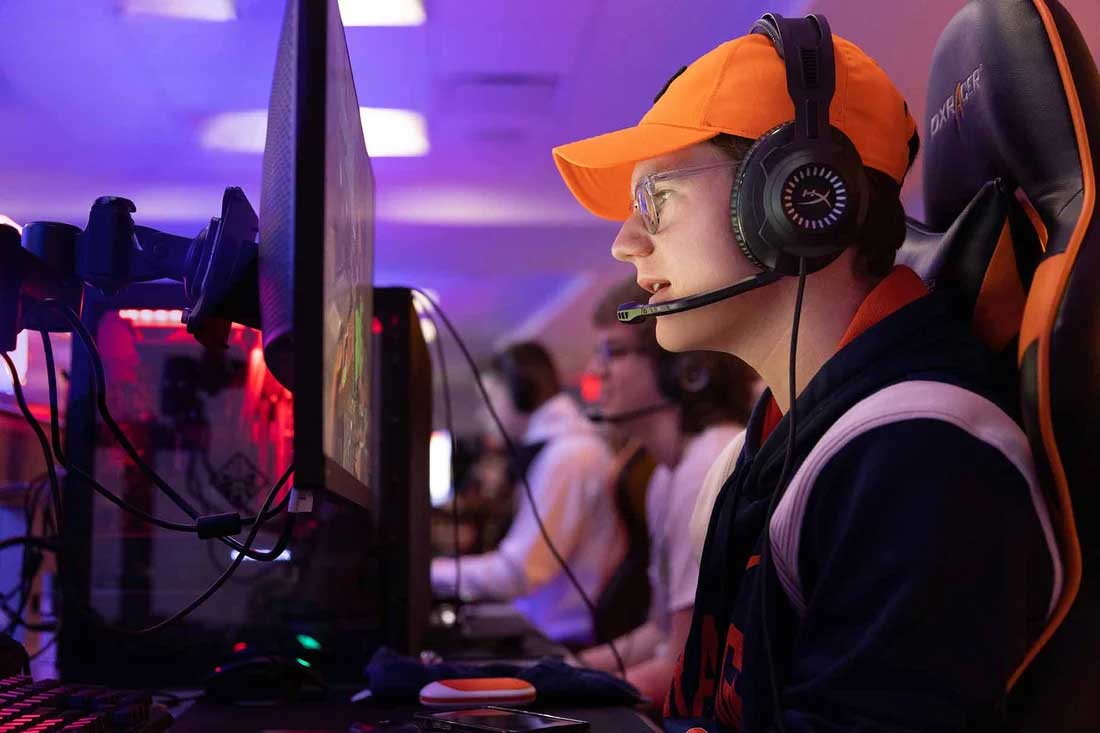
Braeden Cheverie-Leonard ’26 didn’t want to stop using his pacifier as a young boy. So, his parents made him a deal: Lose the pacifier and he was allowed to play a video game with his father. The deal worked and Cheverie-Leonard played his first video game.
Over the years he engaged in all sorts of games, but it was the popular Call of Duty—a first-person shooter game—that really caught his interest. Like any athlete who specializes in a sport, Cheverie-Leonard, a sport management major in Syracuse University’s Falk College, played and practiced for hours. Eventually, he got the opportunity to play competitively.
While still a high school student, Cheverie-Leonard, whose player name is BCL, joined the Minnesota Rokkr Academy, a rookie team in the Call of Duty league based in Minnesota. As a semi-professional, he earned a salary and received performance-based incentives. He was sponsored by Mountain Dew Game Fuel, and recently he’s been in touch with Rumble Gaming, Under Armour, which is planning to launch an esports clothing brand, and Beats, which is looking to get into the gaming headset industry.
Now, Cheverie-Leonard is a member of the Syracuse esports team. Primarily an assault rifle player, he can also flex for the other positions on the four-person team. “I’m the only player at Syracuse—and I think in the country—with Call of Duty professional experience,” he says.

Game Time
As a successful semi-pro, Cheverie-Leonard was recruited to play varsity esports by several schools, but Syracuse—which competes only on a club level—proved to be the best overall fit. “I liked having the ability to help shape the esports program at Syracuse,” he says. “A lot of schools have great esports business professionals that helped shape their programs, but not many have esports players that shaped them.
“The esports world is so new, it’s all about taking chances,” he continues. “Rokkr took a chance on me when I was balancing school, activities and playing at a high level. In a way, I took a chance on Syracuse, trying to envision the best possible outcome for a program with so much potential.”
Cheverie-Leonard was named co-captain of Syracuse’s team where he oversees the roster. He also has two students working on the team’s Twitter and Instagram accounts, which feature game schedules and highlights. The team—which plays in the College Call of Duty league—currently consists of four starters and two bench players and is searching for a coaching staff. They’ve played several scrimmages and recently began participating in organized league play.

“I absolutely love Syracuse,” he says. “I bleed orange. I’ve been involved in everything I can hear.”
It hasn’t been all fun and games, though. As one of the few openly gay competitive Call of Duty players, Cheverie-Leonard says competitive gaming can be sexist and homophobic at times.
“That is the current dark side of esports,” Cheverie-Leonard says. “It’s primarily straight men in their twenties. I think we could do a lot to diversify that.” To that end, he says one of his goals with Syracuse’s esports program is to make it more inclusive. He also implemented a zero-tolerance policy against trash talking. Any slurs or profanity and a player is off the team.

Level Up Goals
Besides his aspirations for the esports team, Cheverie-Leonard is on the path to a new goal—with his sport management studies and training, he hopes to one day become a general manager of a sports team. “I’ve always liked leadership, whether that’s coaching or as a general manager or an owner. I’m a people person, I want to do something that can make the people around me more successful,” he explains. His classes have opened his eyes to the many opportunities in sports he hadn’t considered—sponsorship, ticket sales and event management. And he loves the access to guest speakers and alumni who’ve shared their experiences with him and his classmates.
Cheverie-Leonard is also recognized for his gaming accomplishments, literally and figuratively. He’s been approached for photos and autographs by fellow students, and he’s been a guest speaker in esports classes on campus.
A return to professional competitive esports isn’t written in the stars, though. Saying he doesn’t “want to get arthritis when he’s 30,” Cheverie-Leonard is looking for other ways to stay involved, including coaching, which he’s done in the past. He urges players to exercise like any athlete would and to be aware of injuries. Hand and wrist injuries, eye strain, and neck and back problems are common from hours of sitting at a computer.
Outside of class and the esports gaming room in the Barnes Center at The Arch, Cheverie-Leonard keeps busy with activities that allow him to interact with current and prospective students and their families. He’s in Otto’s Army, a Falk College student ambassador, and a University 100 member training to be a campus tour guide. He’s also done commentary on sports radio and sports podcasts.
“I truly appreciate the respect that esports gets at Syracuse,” Cheverie-Leonard says. “While esports has really added to my experience, my overall Syracuse experience has been incredible. I absolutely love it here. I can’t wait for the next three years.”
Game on.
~ An SU Story by Lisa Maresca originally published on April 4, 2023.
